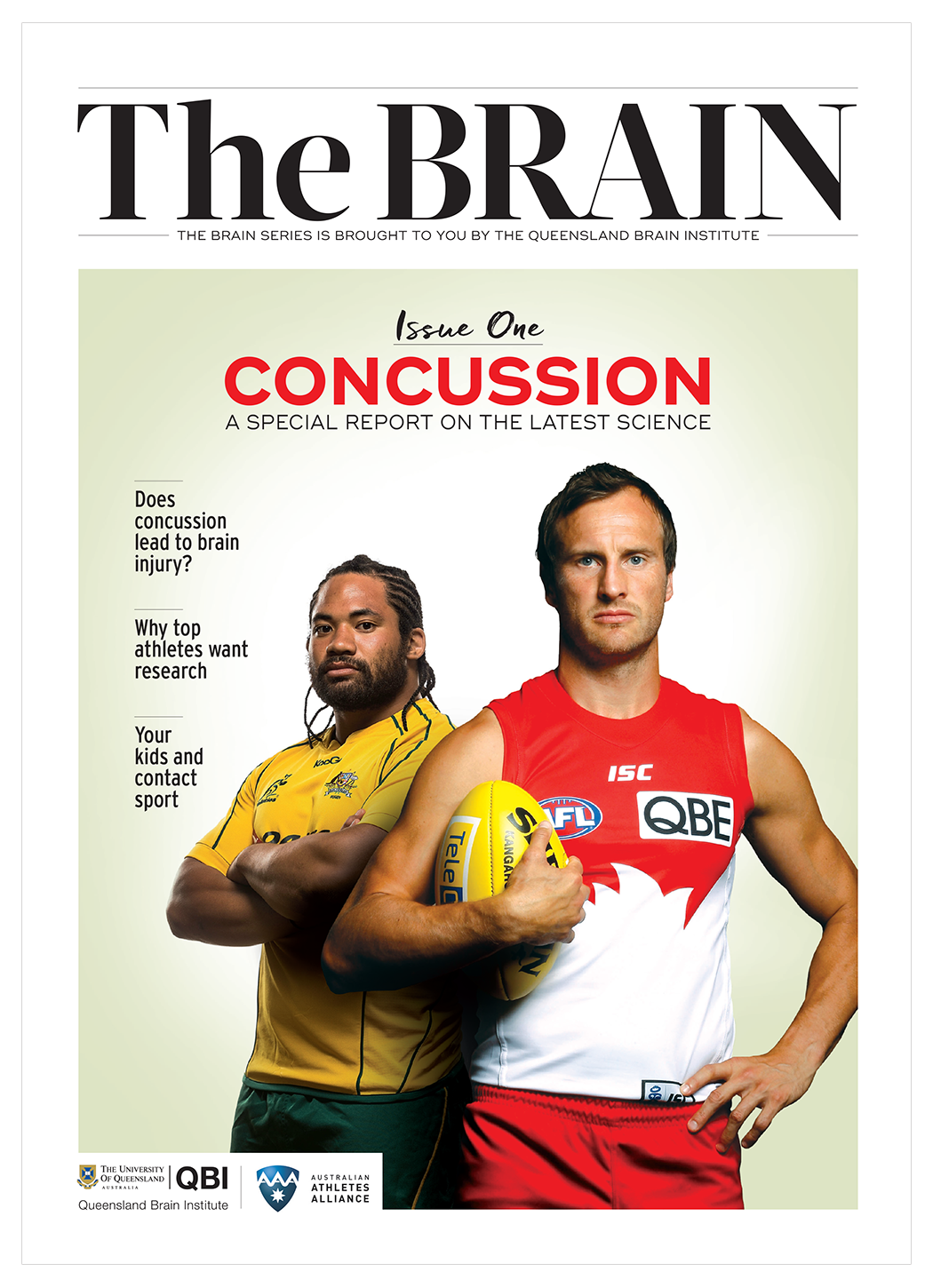Concussion research at QBI
Concussion research can make our athletes safer
Here at QBI, we are researching the impact of concussions on the brain. We aim to answer questions like:
- How does concussion affect the brain’s ability to function?
- Is there a better way to diagnose concussions?
- How long does it take the brain to recover from a concussion?
- Do concussions put sports players at a greater risk of diseases like dementia?
In a pilot study conducted in 2021, our researchers worked with volunteers from a variety of contact sports, including AFL, rugby league, and boxing, to study concussions using:
- Magnetic Resonance Imagining (MRI) scans
- blood tests
- cognitive testing.
The study confirmed that brain changes are ongoing after a concussion, even when behavioural symptoms have stopped. They also found these brain changes differ between people and injuries.
Associate Professor Fatima Nasrallah and her colleagues are now building on this data with the next research phase. They’ve teamed up with:
- World Rugby
- Rugby Australia
- Qscan
- Trajan
- Sonic Health
- South-East Queensland High Schools
Together, they’re working to identify a blood biomarker that can accurately reflect concussion-induced changes to the brain. This biomarker knowledge will help determine whether there is a brain injury and when the brain has fully recovered. Ultimately, this new evidence will help improve the diagnosis and treatment of concussions and inform return-to-play decisions.
Volunteer for the school concussion study
Hear from some of our sporting ambassadors who are helping to raise awareness about concussion and their widespread impacts on people’s lives. Their stories and experiences show why research is important and how it will help athletes at all levels keep their heads in the game.
Let’s keep enjoying sport and make players safer.
Discover the Queensland Brain Injury Collaborative (QBIC, “Cubic”), a research-led initiative that aims to improve care across the trajectory of acquired brain injury.


